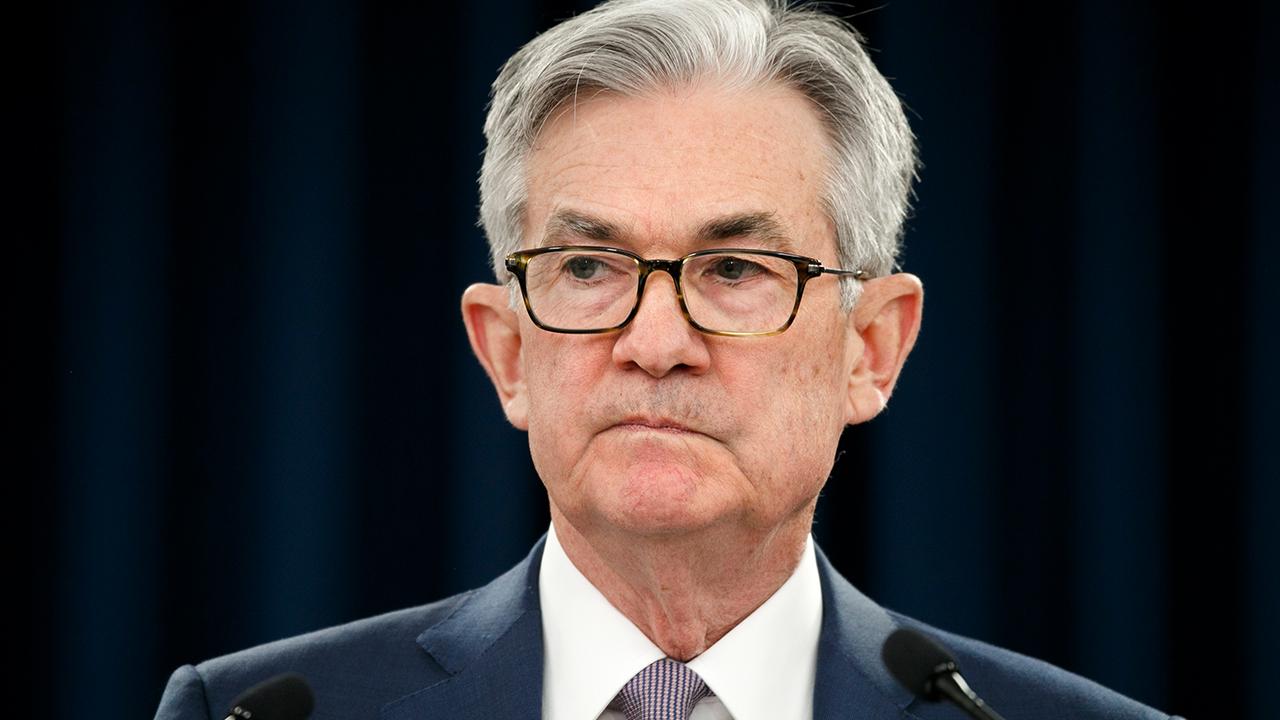The Fed concedes that Trump was right all along
Federal Reserve Chairman Jerome Powell admitted last week at the “virtual” Jackson Hole symposium that the Fed has undershot its 2% annual inflation target consistently for the last several years.
The Fed is tacitly admitting that its deflationary monetary policy has restrained growth and held down wages.
MORE FED STIMULUS NEEDED 'IN COMING MONTHS' TO FIGHT PANDEMIC HEADWINDS, BRAINARD SAYS
Now the Fed is promising to aim higher in order to get more dollar liquidity into the economy.
Powell’s 3,000-word address could have been summarized in just one sentence: “President Trump was right; we were wrong.”
Powell has been exalted of late as a sage and some have even suggested that he should be Time Magazine’s Man of the Year.
But for the last several years Trump is the one who has sounded the alarm that the Fed has been too tight, as evidenced by falling commodity prices and long term interest rates (market rates) signaling that expected inflation rates are at half the Fed’s target.
Trump may not be a trained economist, but when it comes to how to create growth, this real estate titan has uncanny instincts.
FED TWEAKS STRATEGY IN NOD TO RECORD-LOW INTEREST RATES
At the beginning of this year and pre-pandemic, the economy was steaming forward at the best pace of this new century.
But we could have even had a higher tide of growth in real GDP and wages if the Fed had been following his (and our) advice. He’s instinctively rejected the wrong-headed limits to a growth model that pervades modern economics—as do we.
Growth has been in short supply so far this century in part because of this growth phobia at Central banks around the world.
The 1.6%, average real GDP (RGDP) growth during the Bush and Obama years was less than half of the 20th-century average (3.5%).
In stark comparison with the tepid recovery from the 2008 – 2009 Great Recession, in the Kennedy and Reagan expansion years we saw years with growth rates of more than 5 percent.
Some economists have excused the slow growth of the last 20 years by arguing that declining labor force growth condemns us to a new "secular stagnation."
GET FOX BUSINESS ON THE GO BY CLICKING HERE
In nominating Powell, Trump hoped that the new Fed chief would deliver a pro-growth monetary policy. Out of the gate, he got anything but.
In February 2018, the Fed foolishly squashed a robust, full-employment/rising-wages recovery because he bought into the Fed’s wrong-headed “Phillips Curve” thinking, which posits that growth and wage increases incite inflation.
Trump fumed correctly that the Fed was fighting a phantom inflation.
Meanwhile, the stock market tanked and growth stalled out. Had the Fed not taken Trump’s advice and reversed course in early 2019, the economy would have capsized.
Even with the slight uptick in inflation in recent months, commodity prices are still 21% below their level of two years ago.
The 5-year TIPS spread is still signaling PCE inflation at 1.35%, far below the Fed’s 2% target. It’s been this way for years now.
Powell is not saying how he expects to hit his new, higher PCE inflation target when the Fed has not been able to hit the old, lower target despite (presumably) employing all of its “tools" -- near zero rates and several trillion dollars of asset purchases.
But the new mindset, if it sticks, is welcome news. We don't want runaway inflation by any means, but growth and people working don’t cause inflation – they combat inflation. More goods produced means lower, not higher prices.
We should be aiming for higher, not lower real growth rates in the years and decades ahead. Trade, technology and innovation adding massively to productivity as they slay inflation.
Think of how much Google, Apple, Walmart and Amazon reduced inflation. A search for data through catalogs of information used to cost hundreds or even thousands of dollars. Now it is fast and free.
A cell phone used to cost $2,000. Now a phone with ten times the computing power costs $200. In America, you can go into a Walmart and walk out with T-shirts and food and toys for 99 cents.
Right now the tilt toward deflation, not inflation, is the enemy of growth and Trump has been saying that for four years.
Even in these tough times, there is no shortage of global demand for dollars because world investors still regard America as the epicenter of free-market growth and innovation.
The world wants dollars, and one key to restoring world prosperity is for the Fed to supply them.
Stephen Moore is a member of President Donald Trump's economic recovery task force and co-founder of the Committee to Unleash Prosperity.
Louis Woodhill is a senior fellow at the Committee to Unleash Prosperity.




















